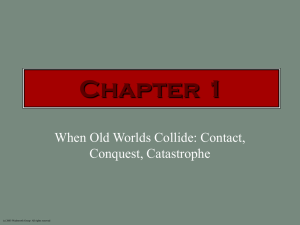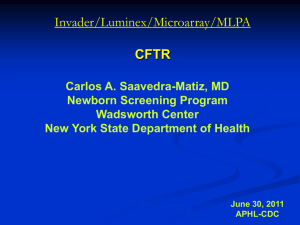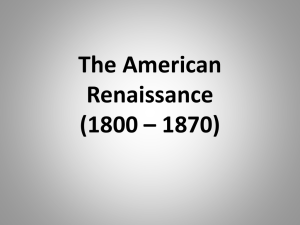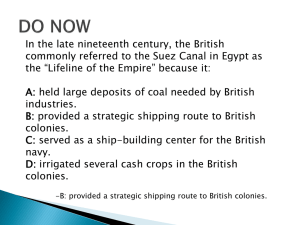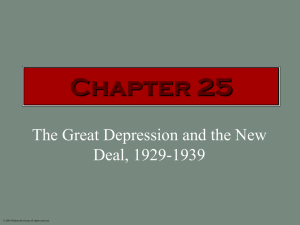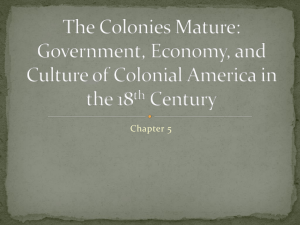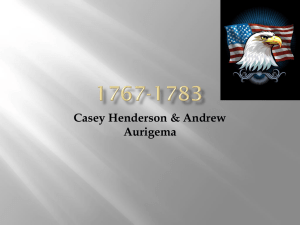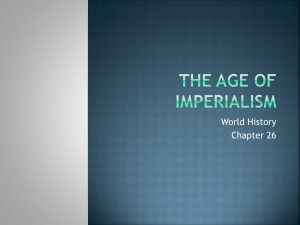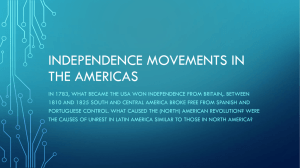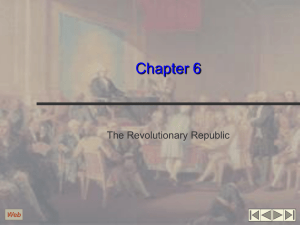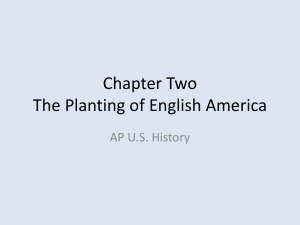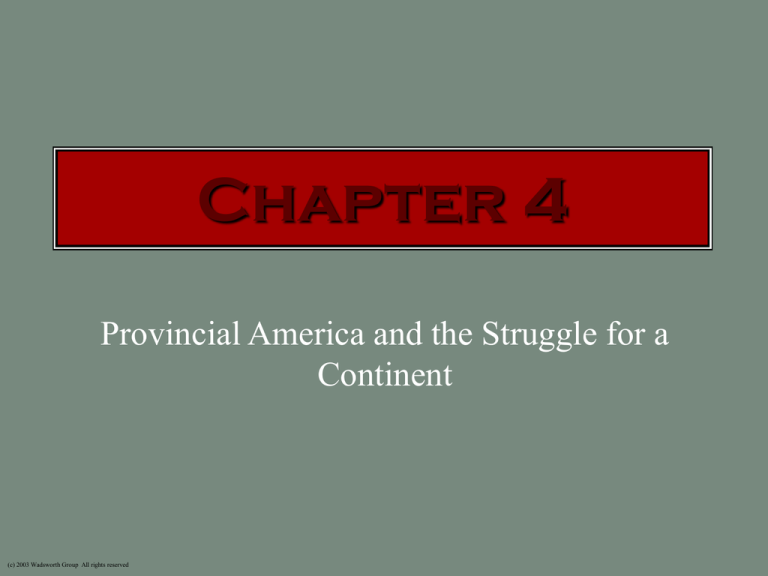
Chapter 4
Provincial America and the Struggle for a
Continent
(c) 2003 Wadsworth Group All rights reserved
Expansion versus Anglicization
• 18th Century British colonies sought to emulate
homeland: housing, fashion, import British goods
• Colonies’ population grew rapidly and demand for
skilled and unskilled laborers, clergy,
professionals outgrew supply
– Northern colonies train their population for these roles
– Southern colonies rely on immigrants
• Constant expansion of British meant constant
retreat for Indians
(c) 2003 Wadsworth Group All rights reserved
Threats to Householder
Autonomy
Political
• Some families
acquired more prestige
than others
• Elected office
dominated by Colonial
“gentleman”
• Population grows
much faster than
elected offices
Economic
• Increase in entail
inspires new
settlement
• Tenancy and other
forms of debt emerge
Anglicizing the Role of Women
• Women worked harder to maintain family
status
• Some trends of inheritance (widows)
reversed
• European double standards of sexual
behavior prevailed
(c) 2003 Wadsworth Group All rights reserved
Expansion, Immigration, and
Regional Differentiation
• Post-1715: era of peace for settlements
• During expansion, settlers fit into their
distinct regions
• New Englanders had sense of regional
identity before independence
(c) 2003 Wadsworth Group All rights reserved
Emergence of the Old South
• 90% of slaves imported go to South
• Plantation owners dominate politics
• Slave life
–
–
–
–
–
Slave gangs, but diverse tasks in tobacco country
Malaria and sickle cell anemia
Task system in rice country
Gullah
Violence against slaves
• Indigo and Eliza Lucas Pinckney
(c) 2003 Wadsworth Group All rights reserved
The Mid-Atlantic Colonies: The
“Best Poor Man’s Country”
• Pennsylvania most attractive for immigrants
– Scots-Irish (Ulsterites)
– Germans (‘redemptioniers)
– Philadelphia largest city in British North
America by 1770s
(c) 2003 Wadsworth Group All rights reserved
The Backcountry
• Scots-Irish and Germans pushed west into
interior of Virginia and Carolinas
• Area develops its own distinct culture, not
as Anglicized
• Settlers of the backcountry considered
clannish and violent
(c) 2003 Wadsworth Group All rights reserved
New England: A Faltering
Economy and Paper Money
• 18th century growth rate lower
– More emigration than immigration
– Disease and war lower life expectancy
– “wheat blast” and food importation
• New England 18th century economy
–
–
–
–
Shipbuilding
Rum industry and Molasses Act (1733)
“Fiat” paper money and depreciation
Anglicized currency: Thomas Hutchinson and
repudiation of paper money
(c) 2003 Wadsworth Group All rights reserved
Anglicizing Provincial America
• Diversity of exports, commonality of
imports
• Georgia: Enlightenment by-product
• Great Awakening
• Mixed and balanced colonial constitutions
(c) 2003 Wadsworth Group All rights reserved
The World of Print
• English Enlightenment works spread through
printing
• 17th century printing limited to Boston
• John Peter Zenger and freedom of the press
– New York Weekly Journal
• Benjamin Franklin
– Pennsylvania Gazette
– Junto (American Philosophical Society)
– Public citizen work: fire company, library, hospital, and
College of Philadelphia
– Inventor and scientist
(c) 2003 Wadsworth Group All rights reserved
The Enlightenment in America
• Man can improve his condition, God not
vengeful
• Low Church vs. High Church
• Sir Isaac Newton, laws of motion
• John Locke, philosopher
• Enlightenment spirit dominates Harvard
• Yale College (1701) founded as reaction
against Enlightenment
(c) 2003 Wadsworth Group All rights reserved
Lawyers and Doctors
• Rise in legal and medical professions
helped spread Enlightenment
• Benjamin Rush
• William Shippen
(c) 2003 Wadsworth Group All rights reserved
Georgia: the Failure of a
Enlightenment Utopia
Background
• 1730s: convergence of
ideas of humanitarianism
and social improvement
led to founding of Georgia
• Georgia’s purposes
– Make productive use of
“worthy” poor
– Buffer of armed free men
between S. Carolina and
Spanish Florida
– Produce silk and wine
•
•
•
•
Operation
Slaves and Liquor banned
Silk and wine production
fail
No elective assembly
Outcome
– Royal govt. imposed 1752
– Economic structure mimics
South Carolina
The Great Awakening
• mid-1730s to early 1740s: immense
religious revival: Great Awakening
• Swept across Protestant lands throughout
Europe and the colonies
• Methodists and Baptists surged ahead
(c) 2003 Wadsworth Group All rights reserved
Origins of the Revivals
• Theodorus Frelinghuysen
• Gilbert Tennent
– The Dangers of an Unconverted Ministry
(1740)
• Jonathan Edwards
– A Faithful Narrative of the Surprising Work of
God (1737)
• John Wesley
– Methodists
(c) 2003 Wadsworth Group All rights reserved
The Synod of Philadelphia, 1738
(c) 2003 Wadsworth Group All rights reserved
Whitefield Launches the
Transatlantic Revival
• George Whitefield
• Traveled and preached throughout Atlantic
colonies
• Anglicans – reserved towards him
• Presbyterian, Congregationalists, Baptists –
embraced him
• Concept that all English Protestants were
members of the same church
(c) 2003 Wadsworth Group All rights reserved
Disruptions
• Hugh Bryan: “American Moses”
• Gilbert Tennent
• James Davenport
– “Shepherd’s Tent”
(c) 2003 Wadsworth Group All rights reserved
Long-Term Consequences of the
Revivals
• Evangelical churches “feminized”
• Freemasons
• Congregational Church and evangelical
secession
• “Letter days” and the breaking down of
localism
• Jonathan Edwards and A Treatise
concerning Religious Affections (1746)
(c) 2003 Wadsworth Group All rights reserved
New Colleges
•
•
•
•
•
•
College of New Jersey (Princeton)
College of Rhode Island (Brown)
Queen’s College (Rutgers)
Dartmouth College
College of Philadelphia (Pennsylvania)
King’s College (Columbia)
(c) 2003 Wadsworth Group All rights reserved
Denominational Realignment
Pre-realignment
dominant groups
• New England
Congregationalist
• Delaware valley
Quakers
• South Anglican
Groups that gain
• Methodists
• Baptists
• Presbyterians
Political Culture in the Colonies
• Colonists felt they were free because they were
British
• Mixed constitutions that united monarchy,
aristocracy, and democracy in perfect balance
• 1720s: every colony (except Connecticut and
Rhode Island) had an appointive governor, council
and elective assembly
– Governor = monarch
– Council = aristocracy
– Elected assembly = commons
(c) 2003 Wadsworth Group All rights reserved
The Rise of the Assembly and the
Governor
• In all 13 colonies, settlers elected their assembly
• Three-fourths of free adult white men in colonies
could vote (vs. one-third in England)
• Assemblies gain power at expense of councils
• Royally appointed governors: success dependent
on winning over assembly
• “Factions” (political parties) universally
condemned in colonies
(c) 2003 Wadsworth Group All rights reserved
“Country” Constitutions: The
Southern Colonies
• The “politics of harmony”
• VA governors Alexander Spotswood and
William Gooch
• “Faction” free politics and policy
– Virginia Tobacco Inspection Act
(c) 2003 Wadsworth Group All rights reserved
“Court” Constitutions: The
Northern Colonies
• Greater economic diversity, greater factionalism
• William Shirley and Benning Wentworth:
governance through reward and patronage
• Common politics: liberty, property, and no popery
• Robert Hunter
• Quaker Party
(c) 2003 Wadsworth Group All rights reserved
The Renewal of Imperial Conflict
• 1739-1763: new era of imperial war
• English colonies, New France, New Spain
and Indians all involved
• North America split between Spain and
Britain
(c) 2003 Wadsworth Group All rights reserved
Challenges to French Power
• Louisbourg fortress, Cape Breton Island
• Company of the Indies and Louisiana
• French hold on American interior weakened in both
North and South
• Indian “republics” and trade with the British
• Natchez Indians
• France lost influence and prestige in North America
(c) 2003 Wadsworth Group All rights reserved
The Danger of Slave Revolts and
War with Spain
• Gracia Real de Santa Teresa de Mose (Mose)
– Francisco Menéndez
– Yamasees
•
•
•
•
Stono Rebellion (1739)
War of Jenkins’s Ear
New York conspiracy trials
Britain defeats Spain
– Oglethorpe’s defense of Georgia
– Anson and the capture of the Manila galleon
(c) 2003 Wadsworth Group All rights reserved
France versus Britain: King
George’s War
•
•
•
•
France joins Spain against Britain 1744
Fort Louisbourg falls to British 1745
Boston Impressment riots 1746
Treaty of Aix-la-Chapelle (1748)
(c) 2003 Wadsworth Group All rights reserved
The Impending Storm
• War drove British frontiers
back, but colonies had
promised land grants to
volunteers
• Areas of frenzied
expansion: Maine, New
Hampshire and middle
colonies
– Colony vs. colony
– Settlers vs. Native
Americans
– British vs. French
• Ohio Company of
Virginia
– George Washington
• Marquis Duquesne
• French movement to
block British
settlement west of
Alleghenies
The War for North America
• 1755: British professional army conflicted
with the householder society and
voluntaristic colonists
• Colonists and Britain learn to cooperate in
order to achieve victory against France
(c) 2003 Wadsworth Group All rights reserved
The Albany Congress and the
Onset of War
• War: New France vs. Virginia
• Albany Congress
– Keep Six Nations (Iroquois) neutral
– Benjamin Franklin and the Albany Plan
• President General and Grand Council
• Raise soldiers, levy taxes, deal with Indians
• Rejection
– Centralized relations with Indians
(c) 2003 Wadsworth Group All rights reserved
Britain’s Years of Defeat
• Edward Braddock
• Fort Duquesne
• Acadians
– Cajuns
(c) 2003 Wadsworth Group All rights reserved
A World War
• Pierre de Rigaud de Vaudreuil
– Frontier war to scatter Britain’s superior resources
• Louis-Joseph, marquis de Montcalm
– Traditional European siege warfare
• Fort William Massacre
• Britain declares war on France, 1756
• Seven Years’ War (1756-1763): France, Austria,
and Russia vs. Prussia (subsidized by Britain)
• Spain neutral until 1762
(c) 2003 Wadsworth Group All rights reserved
Imperial Tensions: From
Loudoun to Pitt
• Earl of Loudoun, British military commander in
N. America 1755
– Coercion to force colonial cooperation
• William Pitt, Prime Minister 1757
– Consent to gain colonial cooperation
– Replaces Loudoun with James Abercrombie
• By 1758, Britain finally had a military force
capable of overwhelming New France
• Cooperation between redcoats and provincials
became routine and effective in warfare against
French & Indians
(c) 2003 Wadsworth Group All rights reserved
The Years of British Victory
• British navy prevents France from reinforcing
Canada
• Marquis de Montcalm (French N. America
commander) decides on defensive strategy
• Peace between Indians and British 1758
• Quebec 1759
– James Wolfe
– Marquis de Montcalm
– Plains of Abraham
• Montreal and the fall of Canada
(c) 2003 Wadsworth Group All rights reserved
The Cherokee War and Spanish
Intervention
• Cherokee attack 1760
– Drive South Carolina settlement back 100 miles
– Peace treaty 1761, but backcountry settlers
restless
• Spain entered war 1762
• British forces took Havana and Manila in
the Philippines
• France and Spain sued for peace
(c) 2003 Wadsworth Group All rights reserved
The Peace of Paris
• Peace of Paris ended the war 1763
• Britain returned Martinique and Guadeloupe to
France
• France surrendered some West Indian islands and
mainland North America east of Mississippi
• Havana returned to Spain, Florida ceded to Britain
• France gives New Orleans and lands W of
Mississippi river to Spain
• Indians angrily rejected peace settlement and
France’s surrender of their lands to Great Britain
(c) 2003 Wadsworth Group All rights reserved
Conclusion
• 1713-1754: expansion and renewed immigration
pushed settlements of North America into the
interior
• Colonies anglicized in many ways due to impacts
of a growing population
– Impacts on families, women
– Enlightenment and Great Awakening
• Imperial rivalries: French and Indian war
• Provincials and redcoats: different perceptions
(c) 2003 Wadsworth Group All rights reserved

